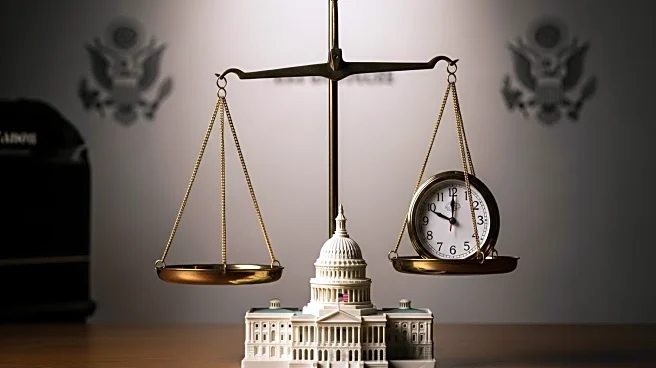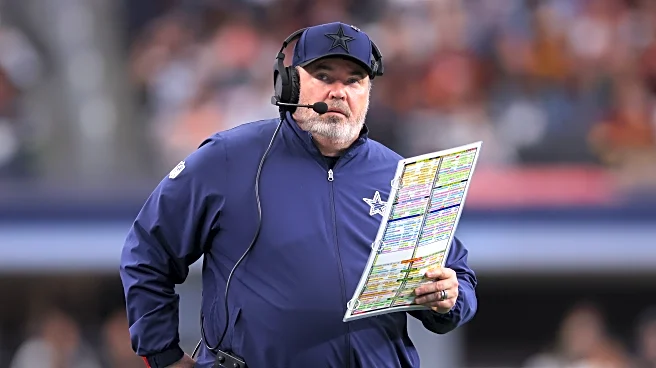What's Happening?
The U.S. Senate is set to reconvene on Monday to vote on competing stopgap-funding measures as the federal government shutdown enters its sixth day. The shutdown stems from a deadlock over congressional spending bills, with each party backing different versions. The Democrats support a bill that includes an extension of healthcare provisions, while Republicans oppose this version. The Senate is expected to hold its first vote at approximately 5:30 p.m. ET. If the Democrat-backed bill fails, the Senate will consider a Republican-supported seven-week stopgap measure, which has already passed in the House. Over the weekend, both parties continued to blame each other for the ongoing shutdown and lack of compromise.
Why It's Important?
The government shutdown has significant implications for federal employees, government services, and the broader U.S. economy. Federal workers face furloughs or work without pay, affecting their livelihoods and potentially slowing down government operations. The shutdown also impacts public services, including national parks and various federal agencies, which may see reduced operations or closures. The political stalemate highlights deep divisions in Congress, affecting public confidence in government effectiveness. The outcome of the Senate votes could determine the duration of the shutdown and influence future negotiations on government spending and policy priorities.
What's Next?
If the Democrat-supported bill fails, the Senate will vote on the Republican-backed stopgap measure. The outcome of these votes will determine whether the government reopens or remains shut down. Political leaders from both parties may face increased pressure from constituents and interest groups to reach a compromise. The ongoing shutdown could also influence upcoming elections, as voters assess the performance of their elected officials in resolving the crisis. Continued negotiations and potential adjustments to the proposed bills may be necessary to achieve a resolution.










